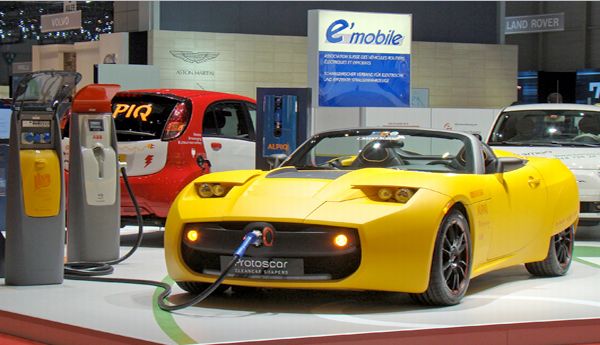
As we know it
An electric car is a vehicle which draws its energy from electricity rather than petrol or diesel. An electric car powered by a rechargeable battery is much more environment friendly than a gas guzzling one. The biggest benefit of having rechargeable batteries powering your car is that they can be recharged anywhere anytime. They can be charged at at any plug even with the plugs we use at home. If you have the need to take the car out early in the morning then you can always charge it overnight and take your ride in the morning. Depending on the type of battery, voltage and the outlet, it can take anywhere between 3-8 hours to fully charge an electric car. An electric car with a fully charged battery can travel anywhere between 40 to 325 miles. It would be advisable that you charge your electric car batteries outdoors since hydrogen gas is released during the charging process. Therefore, charging the batteries indoors can be troublesome.
Need for change:
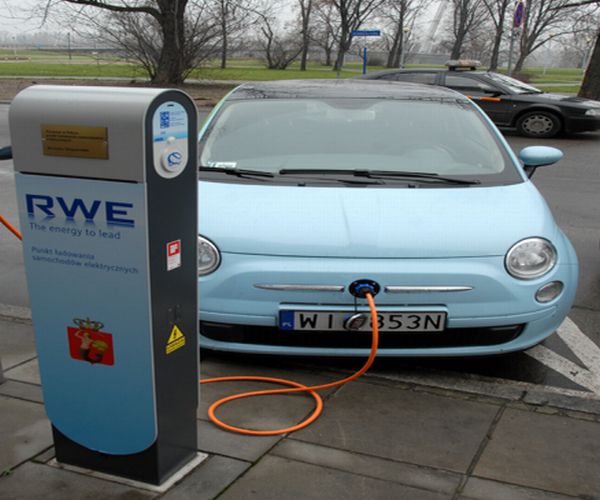
But it is not all hunky dory with the electric car. The battery technology, although have advanced quite a bit in the recent years, is still far from being fully mature. The biggest problems with car batteries are there mileage. While a conventional vehicle can run for 300+ miles on a full “belly”, it is extremely difficult for an electric powered car to achieve this feat. But there are indications that this problem will be sorted out in the near future. Also charging these vehicles can be a headache for people who live in apartments and have to park the car on the roads. Having the charging cable lying on the pavement can be a problem for other people. Another big problem about buying a fully electric car is their price. The cars costs a little more compared to the features they offer. But one advantage with these cars is that the owneship cost is low since you would not have to spend money on fuel. But most people are unwilling to invest a big sum at one time while buying them.
What’s next?
1) Fast charger promises to re-fuel electric cars within 15 minutes:
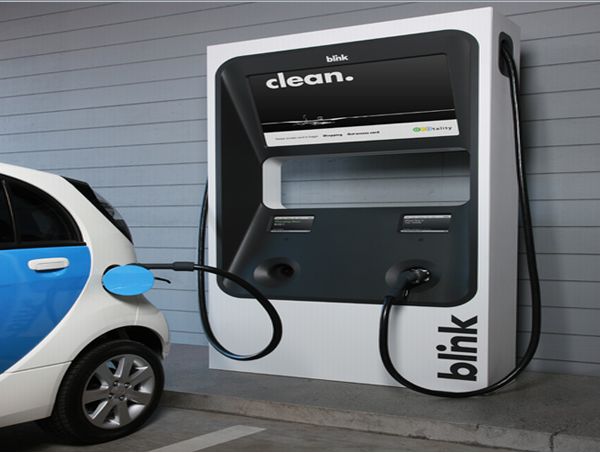
What’s new?
The problems of electric cars related to charging of batteries could soon be a thing of the past with the development of fast charging technology which could literally recharge your car battery within a time as short as 15 minutes. This new development in the field of battery recharge has been brought about by a Norwegian firm Think in collaboration with AeroVironment. The technology, once fully developed, will fill up your car battery up to its 80% capacity in 15 minutes.
What difference will it make?
According to the companies involved in the project, the technology is now ready for use and will soon be available for consumers. They plan to set up a series of fast charging stations in various areas such as shopping malls, convenience stores and and parking garages. According to Think Chief Executive Richard Canny the fast charging infrastructure would prove to be very important for high use fleets such as taxi or courier companies. He thinks that people using Think’s vehicles are pretty comfortable with overnight charging. Therefore it would help high use fleets mostly.
Problems:
Well, the problem with this is still the same thing as with all other electric car charging facilities. Since it would not help regular electric car users much, it would be of no use to people who are driving electric cars for their daily commuting purposes. But it is definitely a welcome news for high use vehicles.
2) JFE Engineering debuts Quick Charging Station for EVs:
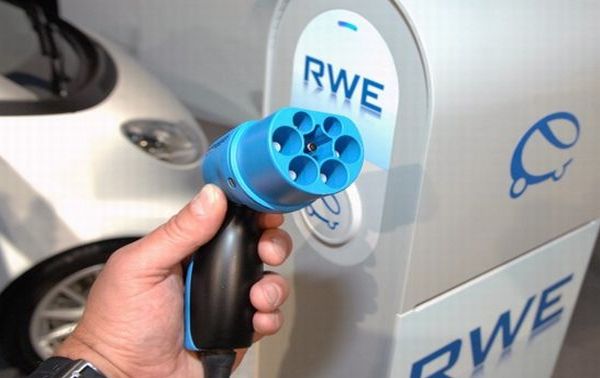
What’s new?
A similar technology in the field of fast charging of electric car batteries has been developed by JFE Engineering Corporation. The JFE Engineering Company, based in Yokohama, Japan, has developed a technology which can recharge your car’s battery up to its 50% capacity in just 3 minutes.
What difference will it make?
The JFE system charges car batteries five times faster than any other system in operation today. The cost of a JFE charging station is also 40% less at $63,000 than other such systems. The system is designed in manner where it is capable of transferring a huge amount of electrical energy to a lithium-ion battery in a very short time. Another advantage of the JFE system is that it can be charged from a “standard” power source which means that you would not have to spend money on the system on every upgrade and since it uses trickle charging method to charge the batteries, it uses a very low amount of electricity & saves money.
Problems:
The problem, however, with the JFE system is that you would need to modify your car’s software and systems in order to use the charging system efficiently.
3) TERRA: Epyon’s new fast charging station for EV’s
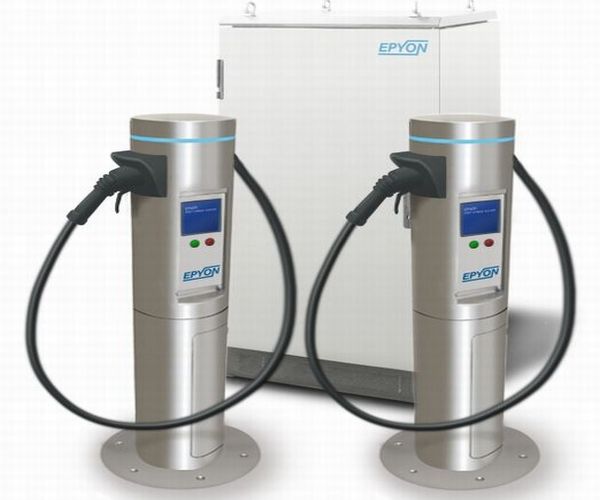
What’s new?
Epyon have recently unveiled its new Terra fast recharging system in Netherlands which coincided with the promotion of Nissan’s LEAF electric car. According to Epyon officials, the new system will recharge car batteries in 15 minutes. All the Terra stations are managed through a high-tech network of web-based power routing system which computes the local power grid, billing and battery life management.
What difference will it make?
Each Terra stations have the capacity of charging a multiple number of vehicles at one time. It can charge the Leaf’s battery in 30 minutes up to its 80% capacity.
Problems:
The company has to do a lot to set up a series of charging station both in terms of money as well as infrastructure. Without a proper network of charging stations the technology will not be of any use to the people.
4) MIT working on an electric car that charges in 10 minutes:
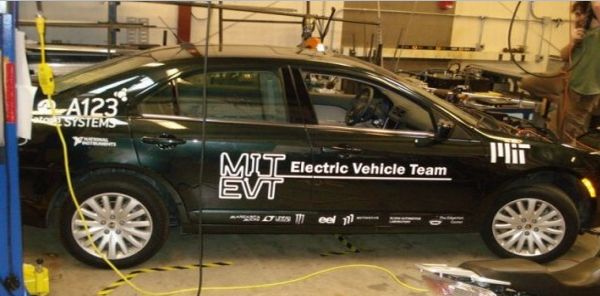
What’s new?
The Massachusetts Institute of Technology (MIT) has also jumped into the fray as far as fast recharge of car batteries are concerned. A team of researchers in MIT is said to be working on a model of an electric car which has the capacity to get recharged in as little as 10 minutes. The car built by MIT researchers may rival conventional gas driven vehicles in the future in terms performance. The car is said to have a top speed of 161 kmph, a range of about 320 kms as well as the capacity of being recharged in 10 minutes.
What difference will it make?
The test bed of the technology being developed by MIT is a Mercury Milan. The team has used lithium iron-phosphate cell batteries from A123Systems because of its very low internal resistance. The car will go from 0 to 60 in 9 seconds flat and will be able to gallop for a range of about 200 miles on a 10 minute recharge.
Problems:
The problem is that charging the car might be a little tricky for an ordinary person. One would not be able to charge the car’s battery from any household plug points. It would require a special 350KW of power and charging stations that are capable of providing 356V and 1000A. Also, the cost of the battery pack is a little on the higher side at $80,000 which the team is hoping to bring down in the future.
5) Tesla to create fast charging battery for cars:
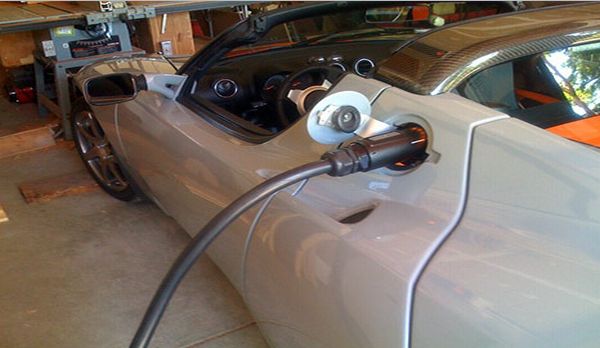
What’s new?
The S-sedan model of Tesla motor will have 440V fast charging battery capability. But it is not yet known how long the battery would take to recharge. Analysts are hoping that it would take less than the time it takes to recharge Tesla Roadster’s battery which takes a grueling 3.5 hours to recharge fully.
What difference will it make?
The S-sedan model is said to have driving range of 225 miles on full charge. The model is 440V capable & would be much better than Tesla’s earlier versions.
Problems:
Since there are hardly any 440V public charging stations available anywhere, charging the S-sedan could give a headache to its owners. ECOtality has 5100 stations available but none of them are public. Although ECOtality have expressed hope that they would be glad to work together with Tesla if an opportunity comes, right now no such prospects are in the offing.




